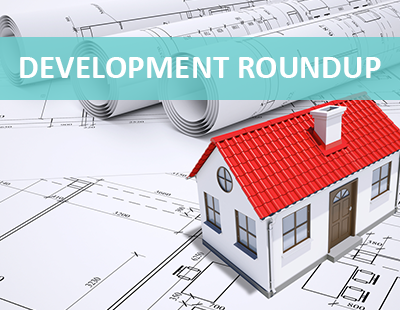We can be almost certain that the growth rate in the property market will be slower than normal, but there is also a reason for optimism if mortgage rates can remain low.
Here’s an overview of some likely trends which could emerge in the real estate market in 2021.
An increase in office/retail vacancies and evictions
While the housing market is set to remain strong, there are significant doubts about commercial real estate, due to the uncertainty in various industries.
This is particularly the case for the restaurant and hospitality sector, where nationwide lockdowns have significantly disturbed revenue streams. Many of these businesses have been forced to close, which could lead to vacant buildings being up for sale.
More shoppers are also preferring to buy online; recent research states that 63% of consumers are avoiding stores where possible in order to buy online. This means that more retail units will become available, which benefits the residential real estate market if these units can be converted into residential property.
Working from home has become the norm for most people, which may soon render offices almost pointless. Companies are also likely to be indecisive about future decisions with regards to office locations.
They may decide to operate with stripped-down headquarters spanning different regions, which opens up the possibility of large former-office buildings being converted into apartments. There are also safety concerns regarding the ventilation and suitability of many current office buildings, given the lingering presence of Covid-19.
These two aspects in combination with the economic impact of business closures could see widespread vacancies of office buildings.
Aside from the office and retail vacancies, it is not beyond the realms of possibility that we may see a similar trend for rental properties. Unfortunately, multiple job losses caused by the pandemic will lead to missed payments, and even with government intervention and subsidies to account for this, it’s likely there will be an increase of evictions.
Urban populations may be lured away from cities
Working from home could also have an impact on internal migration, as commuting becomes a concern of the past. This will allow people to move away from bigger cities in search of cheaper housing.
We have already seen companies preparing for this trend by relocating their corporate headquarters, and this trend is expected to continue. For example, Toyota recently moved out of California to establish offices in Dallas, and Amazon has also opened up a second headquarters in Arlington County.
Therefore, people may decide to move to areas which have well-priced homes and are seeing good job growth, due to an increase in local industry.
It is also worth noting that the benefits of living in a city may be diminished if Covid-19 restrictions remain in place for the foreseeable future. For example, not being able to make use of public transportation, live entertainment and the plethora of restaurants and bars in cities may lead city-dwellers to relocate to suburban areas.
Despite ongoing restrictions, we should expect fears surrounding Covid-19 to ease throughout 2021, as vaccinations are hopefully implemented worldwide. However, there is likely to be a lasting effect from the pandemic, where areas less affected both economically and in case numbers will seem more attractive to prospective buyers.
A huge impact on the first-time buyers market
The sales of high-priced homes have generally slowed, but this cannot be said for lower-priced properties. This can be put down to the increase in millennials buying property: In the second quarter of 2020, millennials were responsible for more closed purchase loans than any other generation.
Despite the notorious reputation of millennials never being able to own their own home, the statistics would suggest that the generation is now beginning to enter the property market. Realtor.com estimates that the number of yearly mortgage originations will increase by 50% for millennials by the spring of 2021. With millennials having ownership at their reach, the market is bound to become more competitive, especially at the lower price range.
Also, the fact that the property market has not crashed during the pandemic has given millennials a lot more confidence. If low interest rates on mortgages and volatility in other possible investment streams continue, then it is likely that millennials will continue this trend of becoming first-time buyers.
The Covid-19 pandemic will likely be shaping the real estate markets even into 2021. It is not known to what extent closures will be forced upon businesses and offices, but it is hard to see how there will not be significant vacancies in retail and office spaces next year.
Suburban areas are set to become more popular in 2021, as more businesses relocate their headquarters and city-dwellers seek cheaper housing.
Lastly, millennials will be the driving force that keeps the property market competitive at the lower price range.
*Jan Večerka is CEO of Brikkapp, a research and analysis platform for real estate crowdfunding









.png)










Join the conversation
Be the first to comment (please use the comment box below)
Please login to comment